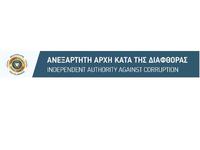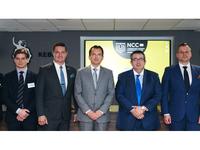Press Releases

10-01-2020 18:12
Statement by Ambassador Andreas D. Mavroyiannis, Permanent Representative of Cyprus to the United Nations, at the Security Council Open Debate on the "Maintenance of International Peace and Security: Upholding the UN Charter"
Mr. President,
I wish to thank you for organizing this extremely topical debate and wish Vietnam a successful tenure on the Council.
While reaffirming the Charter as the foundation of the system of collective security and the Security Council as the organ entrusted with the main responsibility for the maintenance and/or the restoration of international peace and security, it is important that this debate goes well beyond this. We need in particular to reassess the Council's evolution, since it reflects on the Charter, as well as the Council’s record, since it reflects on the UN system as a whole.
We need in particular to remind ourselves that the Security Council remains a sui generis body legitimized to some extent by history and power relations on the international level, but more so, by its capacity to uphold international peace and security. Such a teleological approach to legitimacy comes with a number of caveats and entails full accountability towards all stakeholders, be they Member States or other bodies or organizations. The Council needs to constantly demonstrate its relevance and, it is in this context that we need to integrate the ongoing debates on its working methods, enlargement and representativity, the constantly widening definition of threats to international peace and security, and the effectiveness of its decisions and actions.
The world has moved on since 1945. Adaptation is normal and welcome. The number of conflicts has steadily risen and the nature of the belligerents has changed. The climate crisis is bound to increase conflict and displacement. Development, human rights, and issues related to the legitimacy of political and social structures have become major challenges, including in the context of conflict prevention and resolution. The Council is compelled to adopt a more comprehensive approach to security and account for conflict indicators without diverting its primary attention from hard security. It also has to adjust its tools and instruments to the constantly changing world.
We all know that the way the system operates today is very far from the action contemplated under Chapter 7 of the Charter. In the face of evolving challenges facing effective multilateralism and the concurrent yet diametrically opposed trends of globalization and fragmentation, the UN has managed, overall, to find the tools to deal with this more complex security environment. The world order has advanced, in large part due to the fact that the rules governing it have become more comprehensive and prescriptive, and hold states to a higher standard.
Only more synergy, complementarity and additionality between the Security Council and other bodies and between states and international institutions in a dialectical relationship can contribute to the needed prevalence of a more comprehensive and integrated approach. Working together and not in competition would enhance the effectiveness of our collective action. The Security Council, being at the epicenter of the system, would stand to gain from this double redefinition, on the one hand of the scope and the content of its mission, and, on the other hand, of the tools and actions available to it.
Through all this, theCharter will further consolidate its central role as, in essence, the Constitution of the international community and will serve as our guide for the generations to come.
Thank you.
(II)
Relevant Press Releases

25-02-2025 12:25
Semi-Annual Reports September 2024-March 2025






